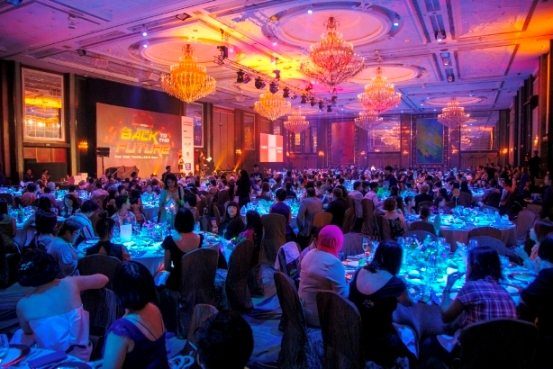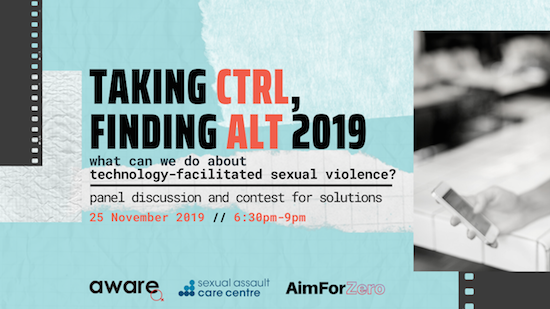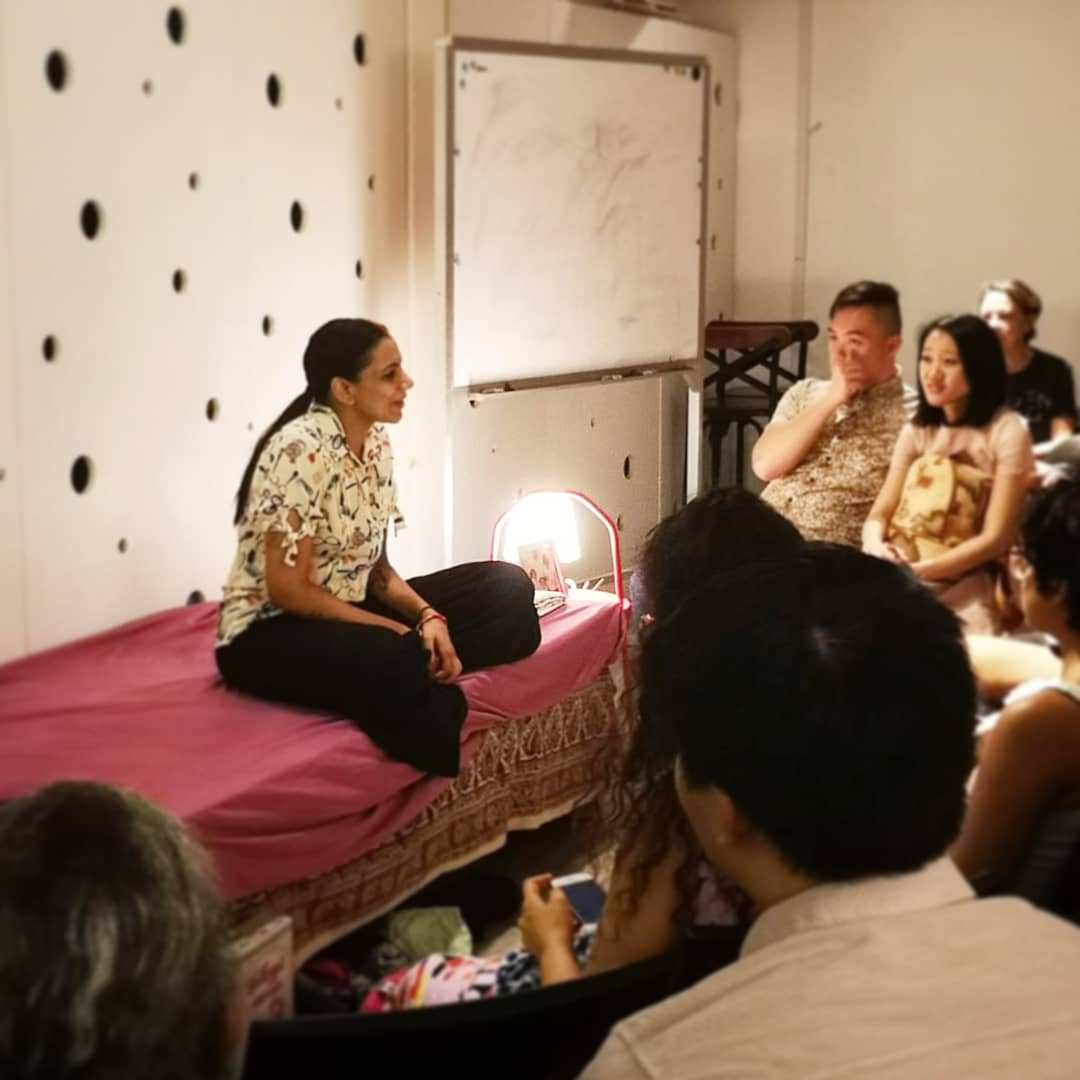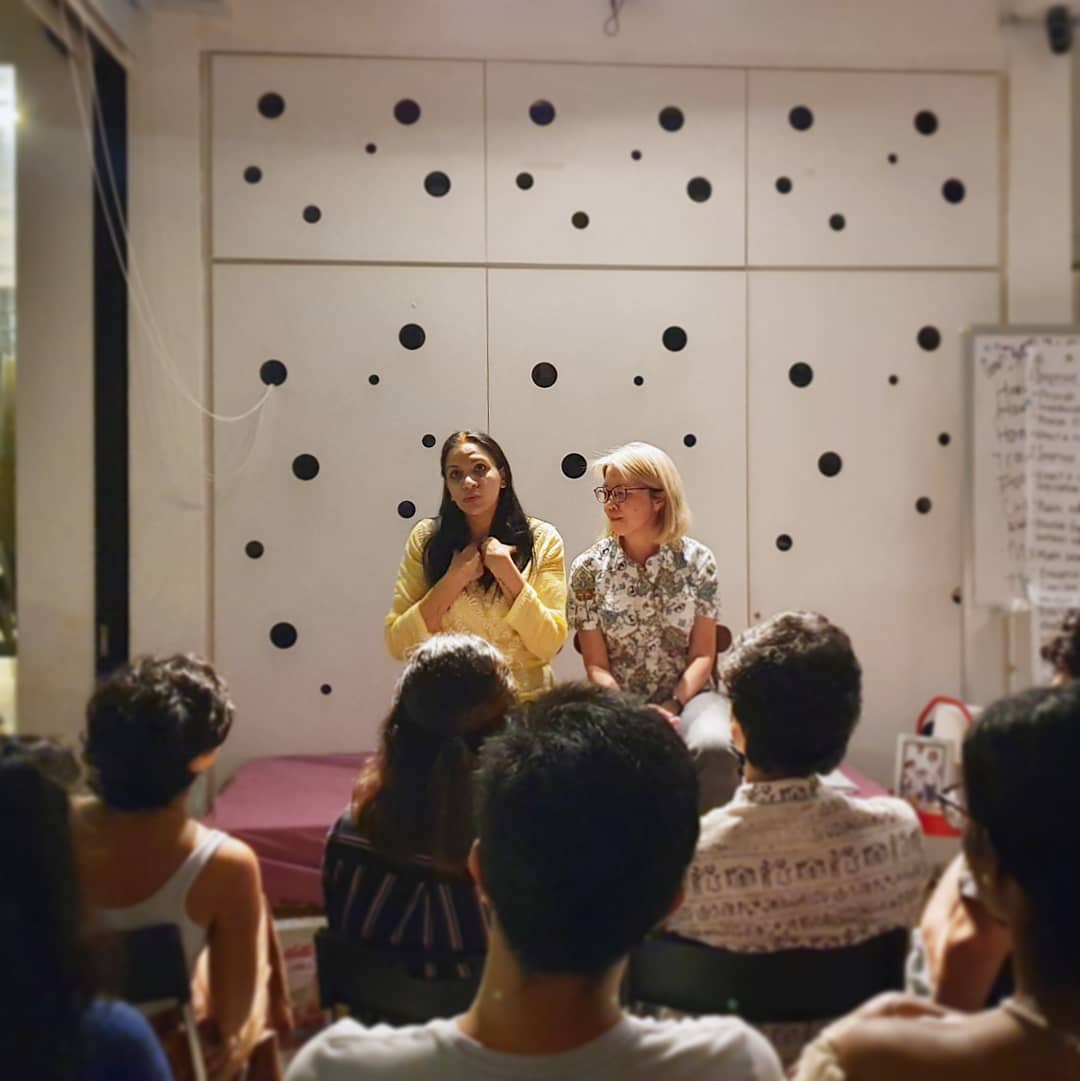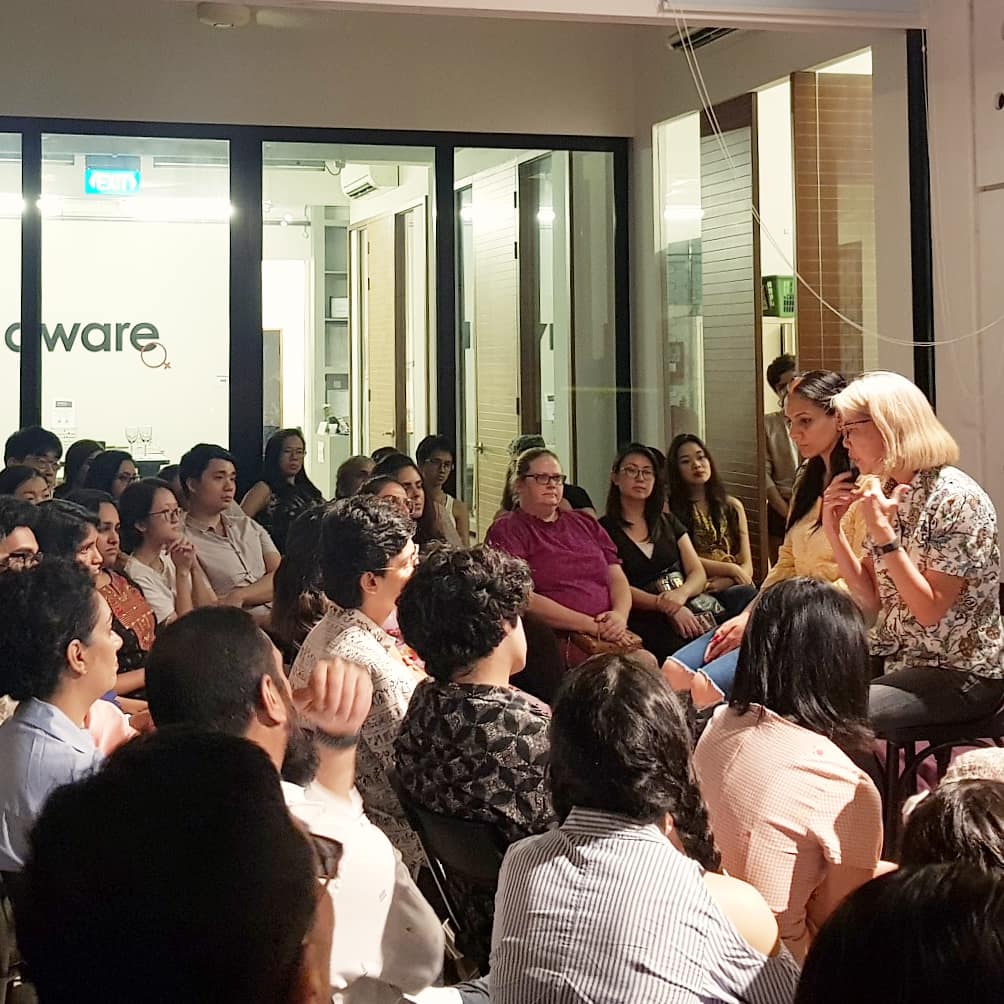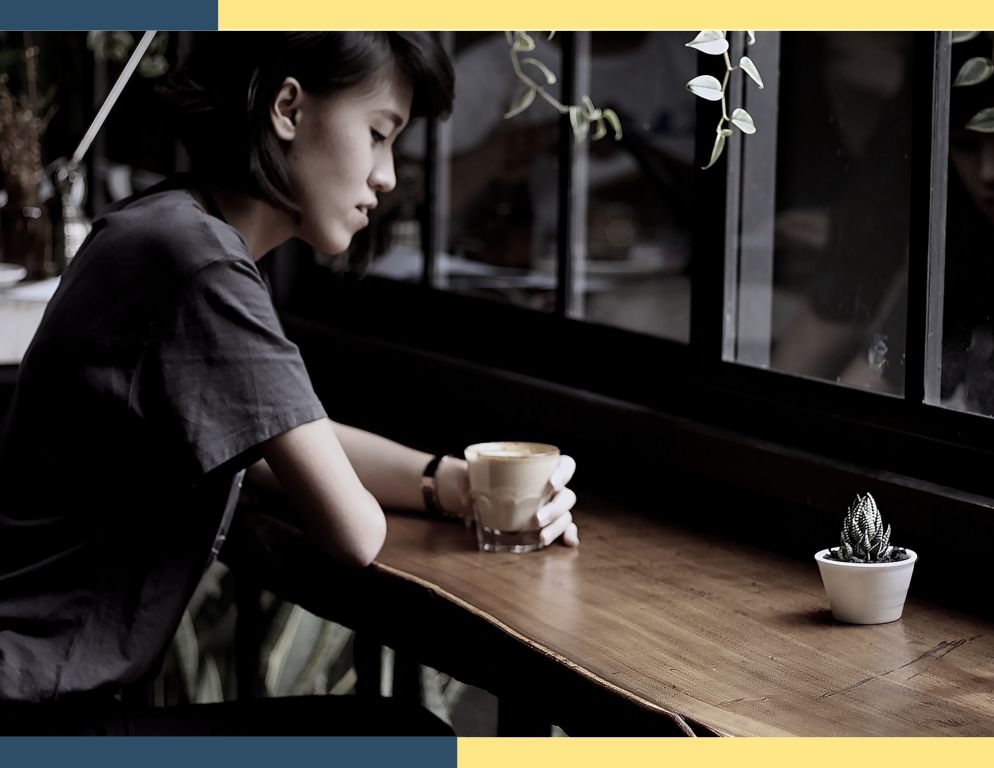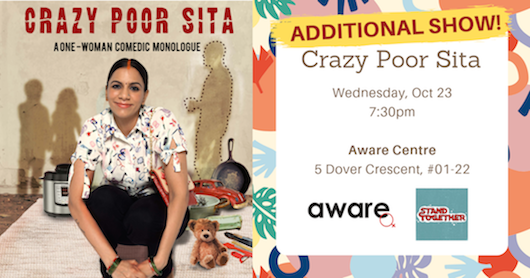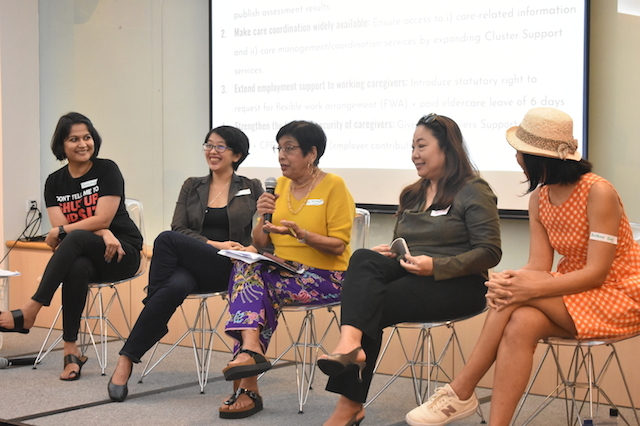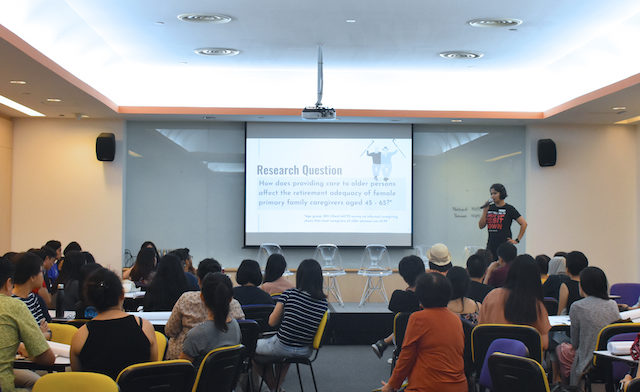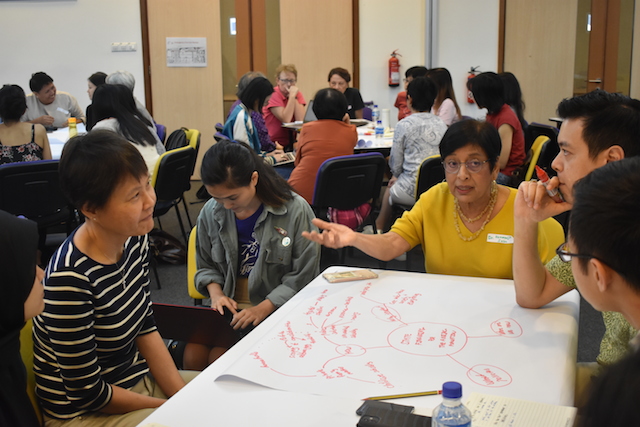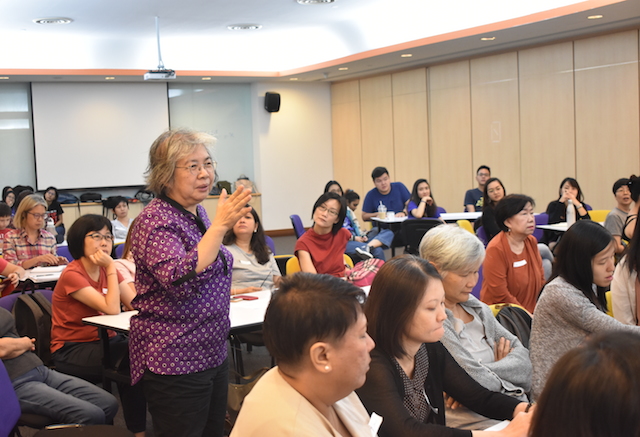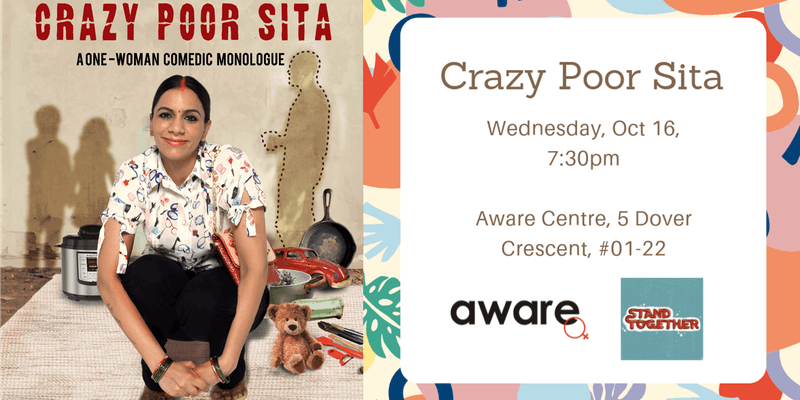This post was originally published as a press release on 3 November 2019.
3 November 2019 – For its annual gala on Saturday, 2 November, gender-equality group AWARE set its fundraising target at $500,000.
The total amount raised—around $600,000 in all—amply exceeded that goal. The amount is the largest sum ever raised by the 34-year-old organisation through a single event.
Entitled the Time Traveller’s Ball, with a “Back to the Future” theme evoking both past victories and future hopes, the gala dinner (in its ninth edition, since 2011) welcomed 500-odd attendees clad in retro-futuristic costumes. These guests enjoyed a full night of revelry at the Shangri-La Hotel’s Island Ballroom.
Donations were raised through AWARE’s annual pledge, “donor’s draw” lucky dip, silent auction and a new live auction segment, as well as the net proceeds from the sale of tables at the gala dinner. Beyond the organisation’s critical services for women, such as the Women’s Helpline and Sexual Assault Care Centre, this year’s pledge shone a spotlight on AWARE’s long-standing research and advocacy work.
“Research and advocacy has always been the beating heart of AWARE, since its founding in 1985,” said AWARE Executive Director Corinna Lim. “That’s how an organisation like ours can effect real, structural change. But—as any researcher will tell you—that work is not always easy to fund. So we’re thrilled that AWARE’s research and advocacy efforts, which contribute to positive changes in our laws, policies and public attitudes, will receive some much-needed support from tonight’s pledge.”
In her address to the crowd, Ms Lim cited recent reforms such as the repeal of marital rape immunity and the decriminalisation of suicide as changes successfully advocated for by AWARE and other non-governmental organisations.
AWARE’s research team this year published the report “Make Care Count”, examining the financial impact of eldercare on female caregivers in Singapore. Upcoming projects include a report on foreign domestic workers performing eldercare in Singapore, and the career effects of workplace sexual harassment on female workers.
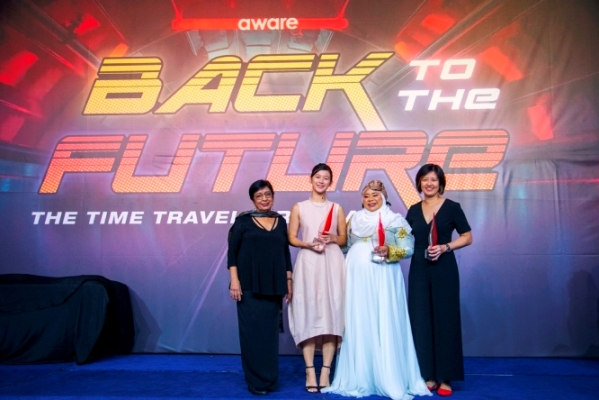
At the Ball on Saturday, the organisation also handed out its annual AWARE Awards, celebrating individuals and organisations that promote gender equality in Singapore. This year, the winners were sociologist Teo You Yenn (named “Woman of Insight”), sexual harassment survivor Monica Baey (“Woman of Courage”) and Homeless author Liyana Dhamirah (“Woman of Resilience”). All three women were honoured on stage.
“When we reflected on the people who sparked conversation and inspired real action in Singapore this year, You Yenn, Monica and Liyana immediately stood out to us,” said Ms Lim. “In their own way, each of them faced substantial challenges getting their messages out into the world, but against the odds they made people listen, and Singapore is the better for it. We’re so proud for them to join our illustrious group of AWARE Award recipients.”
Entertainment for the night came courtesy of actor-comedians Pam Oei and Rishi Budhrani, who paired up as hosts. One particular highlight for audiences was an inspired special edition of AWARE’s famed tongue-in-cheek Alamak Awards. Entitled “200 Years of Alamaks”, the side-splitting routine (by performers such as director Jo Tan, playwright Joel Tan and musical director Elaine Chan) chronicled landmarks of sexist history in Singapore.
Sponsors for the Ball included “Diamond” sponsors KAH Motor and KOP Limited, as well as an array of other organisations and individuals who pledged, purchased tables and contributed items for the live and silent auctions. Among the line-up of auction items were exclusive art pieces by Singaporean artists Jimmy Ong and Sam “SKL0” Lo, a stay at the Datai Langkawi luxury resort, and such unique experiences as a tour of graphic novelist Sonny Liew’s studio and a beer-tasting session with female master brewer Foo Lan-Xin.
Photography courtesy of Studiokel Photography.
Read information about the Time Traveller’s Ball here.
AWARE Award winners 2019
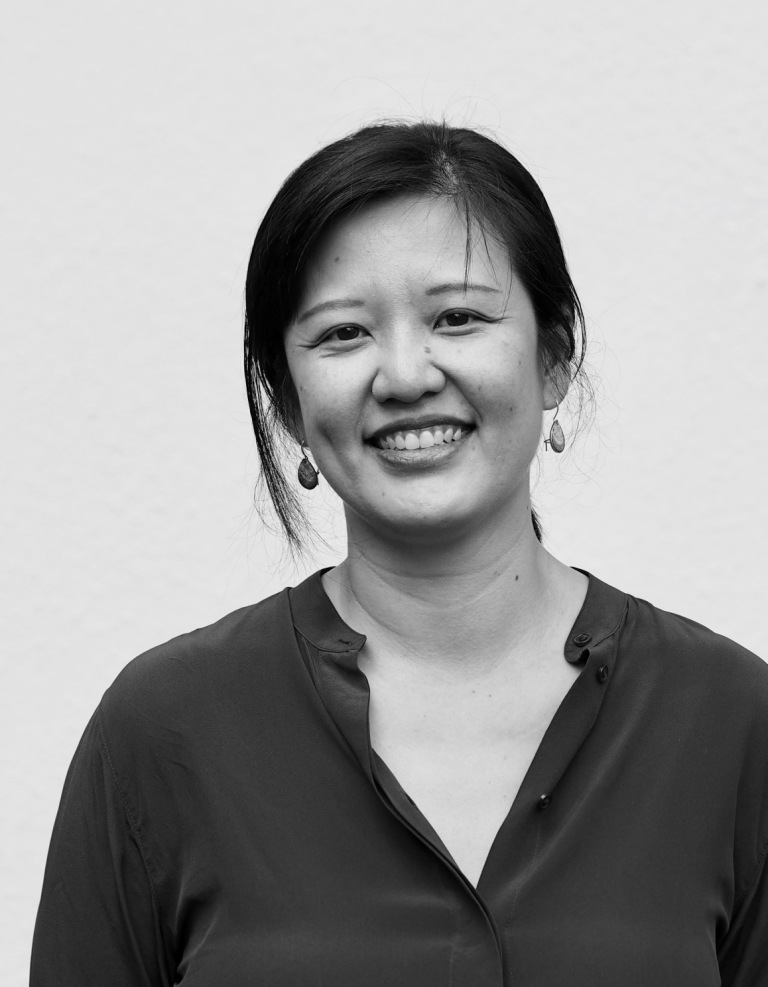
Teo You Yenn
In her book This Is What Inequality Looks Like, researcher, activist and author Teo You Yenn brought to light the ways gender and inequality intersect in Singapore. Immersing herself in the lives of low-income families, she wrote about issues some would rather dismiss, igniting an ongoing conversation about the systemic shortcomings in our famously affluent nation. You Yenn’s approach is measured, anchored in data; she is always respectful, but clear about what needs to change.
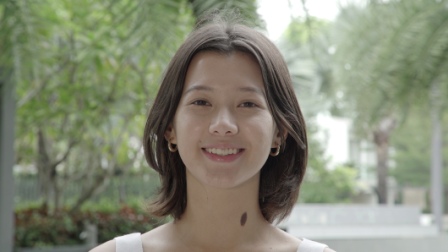
Monica Baey
Monica Baey, an undergraduate, bravely stood up for herself after an experience of sexual harassment on campus. Though the uproar that ensued was intense and unexpected, she persisted, eventually driving a major shift in Singaporean attitudes towards sexual violence. By asking her university to own up to its inadequate policies and procedures, Monica fostered the creation of a safer campus for all students, and galvanised other schools and institutions to follow suit.
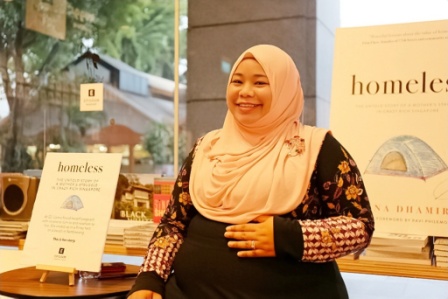
Liyana Dhamirah
In her book Homeless, Liyana Dhamirah shares her journey from the darkest of situations to her current position as a self-made entrepreneur. She sheds light on how society lets the individual down—the confluence of circumstances that led to her homelessness—and how it can pull an individual up again. She embodies resilience, determination and public spirit, in her continuing work to support lower-income families and the homeless.




